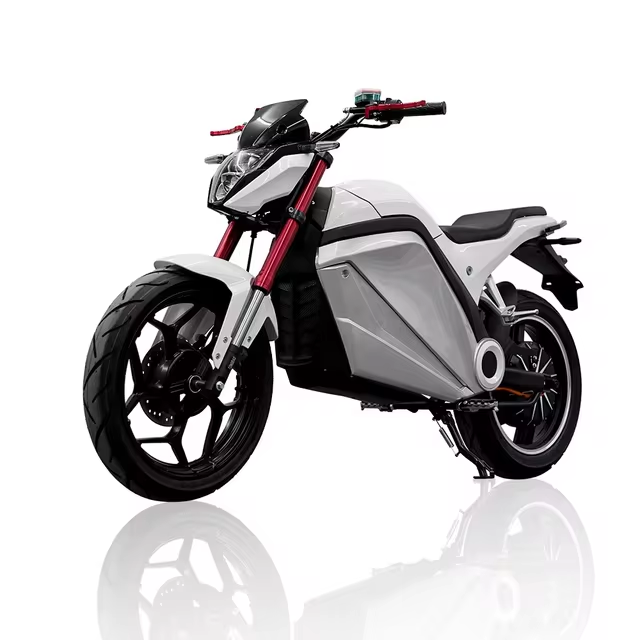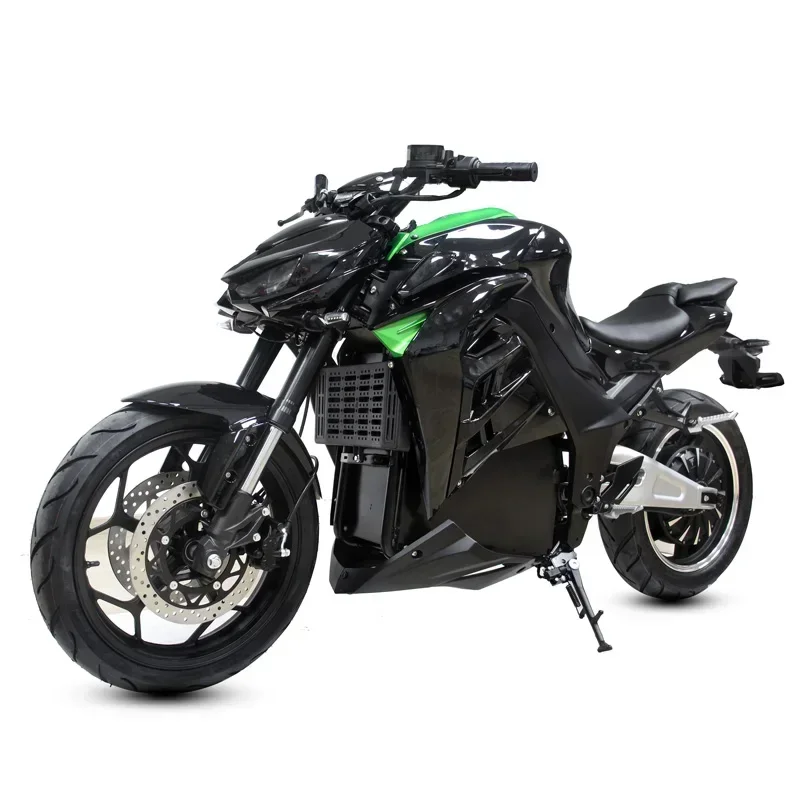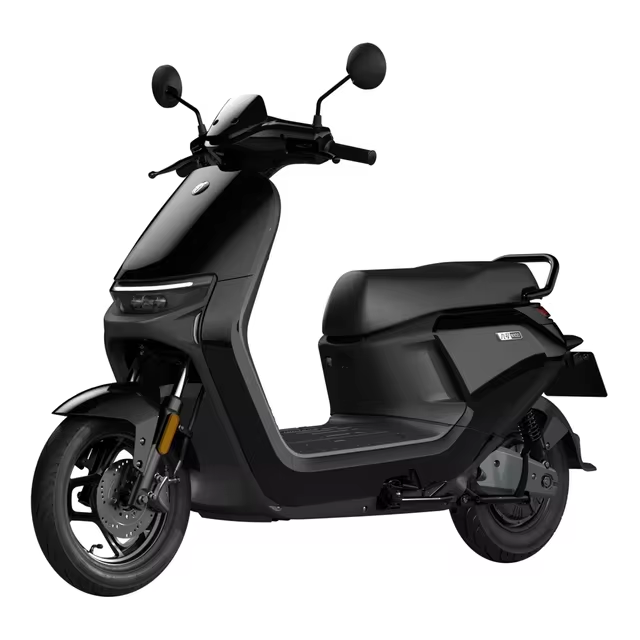Introduction to Electric Motorcycle Licensing Requirements
With the growing popularity of electric motorcycles, understanding their licensing obligations becomes crucial. This section helps clarify what you need to know about electric motorcycle licensing in 2024. We’ll cover what these motorcycles entail and navigate through the complex legal landscape.

What Constitutes an Electric Motorcycle?
An electric motorcycle is a two-wheeled vehicle powered primarily by an electric motor and batteries, without a traditional combustion engine. It mirrors the capabilities of a standard motorcycle while operating on sustainable energy. These motorcycles come in various models, from scooters to high-performance bikes designed for longer rides.
Understanding the Legal Framework for Motorcycles and EBikes
The legal framework governing electric motorcycles often parallels that of traditional motorcycles, but there are distinctions mainly due to their motor type and power output. Licensing requirements are generally similar; however, the classification of these bikes can influence the specific type of license needed. It’s essential to check whether your electric motorcycle is categorized separately from conventional bikes and e-bikes, as this can affect the licensing requirements.
Licensing Basics for Electric Motorcycles
In 2024, the landscape for electric motorcycle licensing has nuances that you should understand. The basic licensing process for these vehicles generally aligns with that for traditional motorcycles. Yet, subtle differences exist, particularly regarding the type of electric motorcycle and the power it harnesses.
Distinguishing Between Different Types of Electric Motorcycles
When seeking a motorcycle license for an electric bike, know the type you have. There are several types, from low-speed electric scooters that may not require a motorcycle license, to high-performance electric motorcycles that do. Mopeds or electric bicycles with pedal-assist may have different requirements. Checking the specific classification of your vehicle is essential.
Variations in their power output, speed, and design influence what kind of licensing you need. Some electric motorcycles, with power exceeding certain thresholds, will require a full motorcycle endorsement. Lower-powered models might only need a basic driver’s license or no license at all.
Documentation Required for Licensing
The documentation for licensing an electric motorcycle includes proof of identity, residence, and completion of required training programs. You will need to provide vehicle registration, insurance details, and likely a certificate from a rider training course.
Most states mandate a vehicle inspection to ensure roadworthiness. Keep records of your electric motorcycle’s specifications and modifications, as these can affect its classification and the licensing it requires. Secure and organize these documents well ahead of your license application to avoid delays.
Comparing Licensing Requirements by State
Navigating through the labyrinth of state-specific licensing for electric motorcycles reveals a complex yet intriguing panorama in 2024. Each state in the U.S. tailors its own regulations that reflect local concerns and policies regarding electric motorcycle use.
Key Differences and Similarities Across States
Despite the overarching similarities in basic requirements like proof of identity and completion of rider training programs, states exhibit pronounced differences in several areas. For instance, the need for a full motorcycle license varies depending on the motorcycle’s power and speed in different states. Simultaneously, states such as California might impose stricter emission standards and safety inspections, whereas states like Texas may have more lenient regulations regarding electric motorcycle licensing.
Uniformity exists prominently in the documentation aspect, where almost all states demand vehicle registration and valid insurance. Also, most states require passing a vehicle inspection to ensure the electric motorcycle is safe for road use.
Case Studies: States with Unique Regulations
Several states have pioneered unique regulations that cater specifically to the rise of electric motorcycles. For example, Oregon requires electric motorcycle riders to undergo a specific electric vehicle operation course, unlike the general motorcycle training required by many other states.
Another case is New York, where electric motorcycles capable of exceeding certain speeds must adhere to stringent licensing akin to conventional internal combustion motorcycles. These case studies showcase the nuanced responses tailored by various states that reflect their specific traffic, safety, and environmental concerns.
 Steps to Obtaining an Electric Motorcycle License
Steps to Obtaining an Electric Motorcycle License
Navigating the process of obtaining an electric motorcycle license in 2024 requires understanding several crucial steps. This section outlines the structured pathway to ensure you meet all legal standards and safely operate your electric motorcycle.
Training and Education Programs Available
A range of training and education programs exist to equip potential electric motorcycle riders with the necessary skills. These programs often include both theoretical knowledge and practical riding skills. They are designed to cover unique aspects of operating an electric motorcycle, such as handling its acceleration and understanding battery management. Prospective riders should look for courses certified by traffic authorities to ensure compliance with state regulations.
Most states require completion of a basic rider course, and some may require additional specialized training focused on electric motorcycles. It’s important to check the specific requirements in your state and select a program that meets these criteria.
Examination and Skills Test Overview
After completing the required training, candidates must pass both a written examination and a skills test. The written test typically assesses knowledge of traffic laws, electric motorcycle operation, and safety practices. The skills test requires demonstrating practical ability to handle an electric motorcycle in various situations.
Examiners look for proficiency in maneuvers like starting, stopping, turning, and emergency responses. Passing these tests proves a rider’s capability to operate an electric motorcycle safely. Ensure that you have ample practice and understanding of your electric motorcycle’s features before taking these tests.
Impact of Electric Motorcycles on Licensing Laws
The rise of electric motorcycles has prompted legislators to re-evaluate and revise licensing laws. As these vehicles become more prevalent, they bring unique considerations that influence regulatory frameworks.
Recent Changes in Legislation
States have responded to the growth of electric motorcycles with legislative adjustments. Recent shifts include updates to classification systems, which now differentiate types of electric two-wheelers. Some regions have amended the minimum power thresholds that determine licensing needs. Others have incorporated electric vehicle-specific content into rider education programs. These changes aim to address technological advancements while ensuring safety on roads.
For electric motorcycle riders, keeping abreast of these legal modifications is vital. They can alter the license type needed, affect the examination process, and dictate additional training requirements.
Predictions for Future Legal Trends
Looking ahead to future legal trends, there’s an expectation for clearer, more cohesive electric motorcycle regulations across states. Anticipate a push for national standards that streamline the licensing process for riders. Innovations in electric motorcycle tech may also lead to advanced safety requirements and riding qualifications. Environmental considerations could drive changes too, such as incentives for using green vehicles.
As electric motorcycles gain popularity, states will likely continue evolving their laws to facilitate their integration into the transport system while prioritizing safety and sustainability.
 Resources and Help
Resources and Help
Navigating the licensing process for electric motorcycles requires access to credible information and support. In this section, we provide guidance on where to find official resources and useful tips to streamline the licensing process.
Official Resources for Candidates
To support candidates seeking an electric motorcycle license, a variety of resources are available. State Department of Motor Vehicles (DMVs) websites typically offer comprehensive details. These include the necessary forms, requirements, and fee structures for electric motorcycle licensing. Some states provide dedicated sections for electric vehicles, which include FAQs and contacts for further assistance.
It is advisable to frequently visit these official sites to get the most current information. Many states update their resources to reflect new laws or procedures.
Tips for a Smooth Licensing Process
For a smooth licensing process, preparation is key. Here are some practical tips:
- Stay Informed: Keep up to date with any changes in state laws concerning electric motorcycles.
- Gather Documents Early: Assemble all necessary documents well before your application.
- Practice Regularly: Regular practice on your electric motorcycle can ensure you’re ready for the skills test.
- Seek Qualified Training: Enroll in a certified training program specific to electric motorcycles to enhance your skills and knowledge.
By following these recommendations, candidates can navigate the licensing process more effectively and ensure compliance with state regulations.
